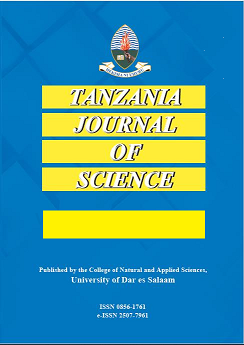Salt Lakes of the African Rift System: A Valuable Research Opportunity for Insight into Nature’s Concenrtated Multi-Electrolyte Science
Abstract
The Tanzanian rift system salt lakes present significant cultural, ecological, recreational and economical values. Beyond the wealth of minerals, resources of these rift salt lakes include unique wildlife, for instance Lesser Flamingo (Phoenicopterus minor) and Cichlids (Alcolapia spp), which adapted chemically aggressive environments like that of Lake Natron. The general hydrochemical equilibria of these salt lakes is governed by Na+ > K+ >> Ca2+ ~ Mg2+ : (CO32- + HCO3-) > Cl- > SO42-~ F- ionic concentration pattern. Salt accumulation mechanism in these endorheic lakes is considered to base on thermo-mechanical disintegrative stress of the geochemistry sourcing. The rains chemically interact with rift terrains, which are dominated with natrocarbonatitic volcanic materials, thus transporting dissolved salts to the lakes. In addition, hot springs around the shores of these lakes carry significant salinity loads into the lakes. The salt reserves magnifies through recurring evaporative concentration in seasonal cycles. Despite this huge wealth of mineral resource potential of the Tanzanian rift salt lakes, they are still underutilized, thus contributing less into the national economy. It is envisaged that studies on phase rule on separation of pure salts from lake brines as demonstrated herein have a direct industrial value addition to Tanzanian rift salt lakes.


